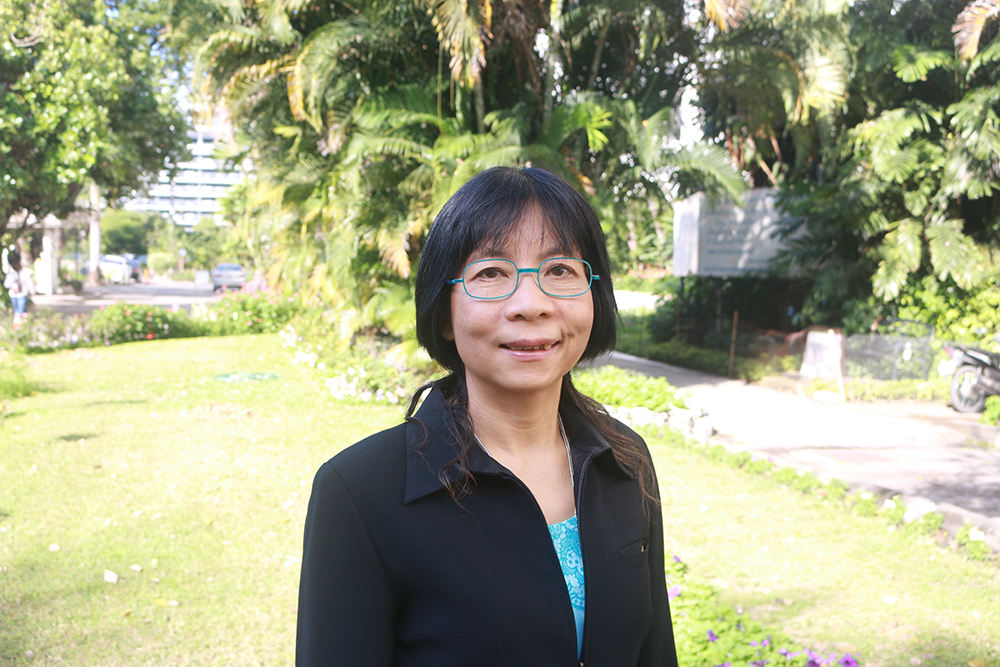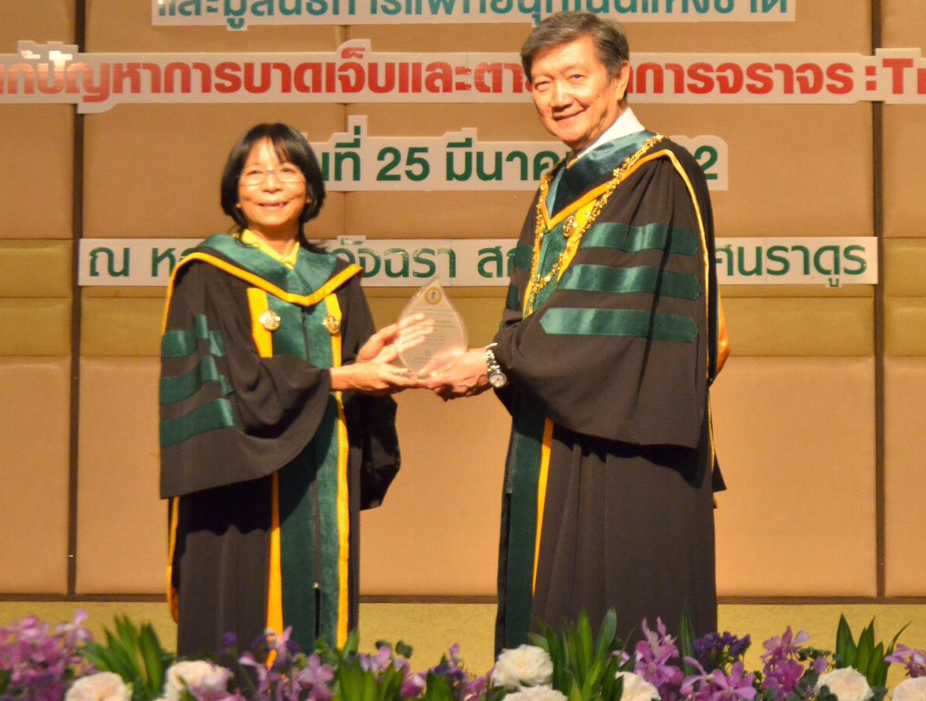Thailand’s seaside is a popular tourist destination but in some waters it is dangerous for swimmers due to the poisonous jellyfish, whose stingers can cause death within 2 - 10 minutes. Since 2008, Chiang Mai University’s research team has been committed to saving the lives of those injured by the poisonous jellyfish and in cooperation with the poisonous marine animals working group have established guidelines for providing information on how to provide correct first aid to those stung by jellyfish.

In 2008 – 2019, at least 40 - 50 cases of severe injuries and 8 deaths from poisonous jellyfish were reported in Thailand, with the last case reported in 2015. It was seen as a complicated issue, political and diplomatically sensitive. The international media had portrayed Thailand as covering up the issue while not being able to correctly address the problem, and improper first aid practices at the time, such as rubbing morning glory and sand on the wound or rinsing the wound with water or liqueur only increased the victims’ chances of death.
Dr. Potjaman Siriarayaporn

Professor Dr. Lakkana Thaikruea
In the beginning, a research team led by Epidemiologist Dr. Potjaman Siriarayaporn, M.D. from the Epidemiology Division, Department of Disease Control and Professor Dr. Lakkana Thaikruea from the Faculty of Medicine, Chiang Mai University applied academic studies to formulate a revised working strategy where empirical data was used to create practical knowledge to address the problem.
Upon confirmation that Box jellyfish in Thailand’s waters had led to several fatalities, a temporary surveillance system was established to monitor the shoreline and it eventually was developed as part of the national surveillance system. A jellyfish poisoning network was established and nursing posts with vinegar were installed that can provide prompt and proper first aid treatment to people who have been injured by jellyfish.
Public impact: Outbreaks and events
vinegar at nursing posts and new warning signs
In 2011-2013, research was conducted and produced a wide variety of media to communicate the risks of jellyfish stings and included guidelines for the treatment and how to control jellyfish numbers in the waters and provided trainings for relevant personnel. The first edition of a jellyfish barrier net was development, signs on how to use vinegar at nursing posts and new warning signs on jellyfish were installed at the beaches.
Chiang Mai University student was severely stung by jellyfish
From 2014 - 2019, a systematic and integrated approach to monitor and maintain the jellyfish surveillance system was put in place and a new species of box jellyfish was discovered in Thailand (Chironex indrasaksajiae Sucharitakul) when a Chiang Mai University student was severely stung by it. Innovative vacuum adhesive tape was developed and is used for collecting and delivering samples to identify the jellyfish poisonous bulbs for prompt notification and response and the 2nd edition of the jellyfish barrier prototype has been developed. The research team has also joined the government working group for poisonous aquatic animals and together developed guidelines for the care and treatment for those injured by poisonous jellyfish.
At present, there is an unusual increase of jellyfish around the world with an increase in the number of people being stung and requiring treatment at hospital. However, no deaths have occurred with thanks to the appropriate precautions in place and due to the first aid that was able to be quickly administered at the scene.

With more than 10 years of dedication in mitigating jellyfish threats, this work was chosen as a case study in 2015 by the Knowledge Network Institute of Thailand, Secretariat of Engagement Thailand Network and has since received many awards. The most recent award was in 2019 when it was presented with the Outstanding Preventive Medicine Physician in the Epidemiology Division of the Year 2018 from Preventive Medicine Association of Thailand. In the same year, Chiang Mai University received a plaque of expert and the Faculty of Medicine had received a plaque of honor by the Ministry of Public Health.
The threat from jellyfish affects not only public health but also the economy, especially tourism. Disseminating accurate knowledge on prevention and first aid treatment to the community as well as creating a surveillance system and a community network on poisonous jellyfish has proven effective in reducing injuries in Thailand.